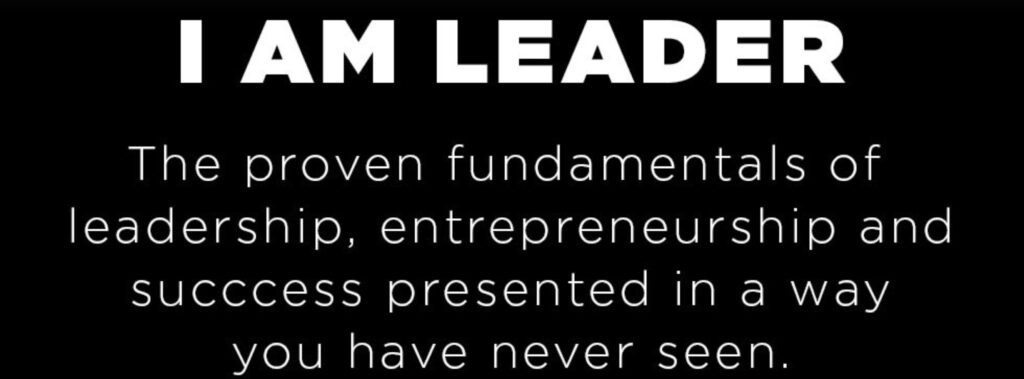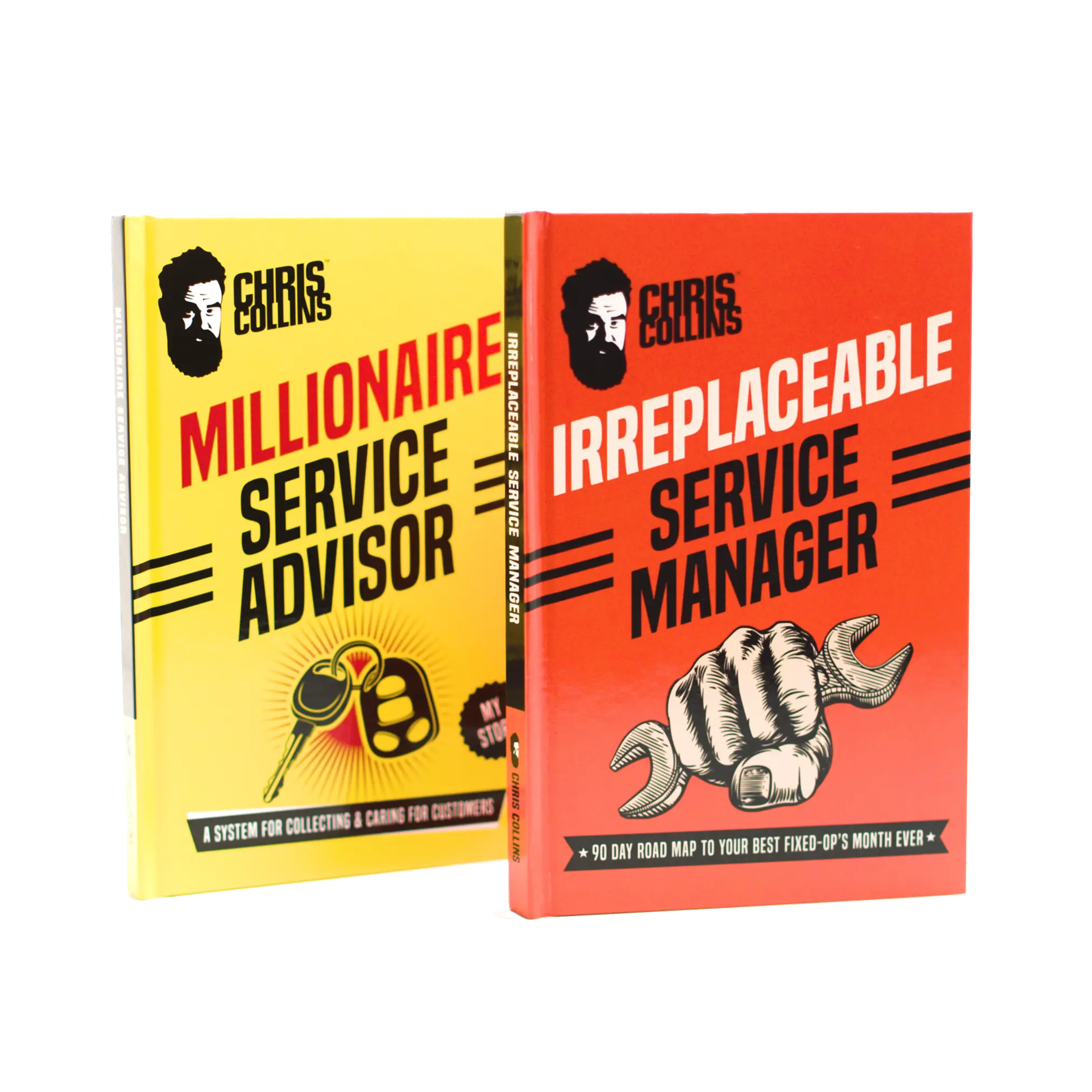I personally hate, automotive consultants. I know people might think that we’re automotive consultants, but those people would be wrong.
Today, we’re going to go through the 4 Reasons Automotive Consultants Can’t and Won’t Save You. It’s a fun list, it’s going to be informative, and we’re going to tell you some inside industry secrets for sure. You might even get a laugh or two out of it.
If they fixed you, they’d be out of work
As Christian puts it, it’s a total conflict of interest. The better they make the client do, the better their chance of unemployment, right?
For us as a company, we don’t have contracts because that’s what our competition would do, and people have an apprehension to getting help because it’d be like, “Well, what happens is I’m locked into this contract. There’s no value, and I can’t get out of it.”
And so, if they have a long term contract, if they’re trying to tie you up for a year or two, they’re probably not any good. If we aren’t earning your business, we don’t want your business. If we’re not providing value, you can walk away.
It’s funny, but I worked for a consulting company really early on and that was their whole thing. They called it spinning plates, and they would try to spin as many plates as they could to always keep you feeling like you were never good enough or never fixed, that you always needed more. And then, they would also bring up these subjects that they would make a huge deal out of, like proficiency. I remember proficiency was all they would talk about, which it never made any sense to me because I didn’t help anybody.
I know in the truck world, proficiency means efficiency, so let’s just define those real quick:
Efficiency is if there’s eight hours in a day and the technician flags eight hours. He’s 100% efficient.
Proficiency was how long the technician was clocked on NRO because that showed how long they were standing at parts, how long they were taking a break, how long it took them to pull a car in and out, but none of that really made sense.
I remember this one time, I went back to one of their clients on my own and the shop was like 120% proficient and 80% efficient because the technicians were really good at managing the clocking on and off. They were all bonused on it. They made so many dollars more if they were proficient, but they weren’t efficient.
As soon as I switched it, they were over 100% efficient and they weren’t managing the clocking on and off of NRO anymore. They were managing the production and getting cars fixed.
We used to argue about that because I would tell them that’s not the best thing for the client, and they were like, “Yeah, but you know, it’s a new thing.” There were a couple of things like that, like they would try to get rid of the back parts counter, which I thought was funny.
Christian and I talked earlier about putting up a kiosk, and they would spend months planning out how to put a parts kiosk in the shop. They would have a parts person in the shop, and I did it three times in three different service departments. It’s funny because the dealers would go to their 20 group and they’d be bragging to everybody like, “Oh yeah, we closed our back parts counter and we have a parts person actually in the shop.”
I don’t know why, but for me, I always go to this weird place where I’m like, “Well, I’m just curious. What has happened to our efficiency?” And the efficiency every time I did it went down about 5%.
It’s not weird, though. It makes total sense because I kind of looked into it. I would tell them something like, “Every time we put your inspection software in, our hours per RO go down,” and I figured out why and I’d tell them, “If you want to pay me, I’ll fix it for you, but there’s glitches in your system, in the process. You don’t really understand what’s going on.”
But having a parts person at a kiosk, they don’t really have parts. When you have a back parts counter, a lot of times what happens is techs walk up, hand them the filter, then they type it in and a parts runner goes and gets it. But in the end, it’s not any quicker than the tech just ordering it from the store. And most of the time, what those parts guys would end up doing is BSing with the techs and talking. Them walking a little bit further to a back parts counter doesn’t help!
In every situation where they’ve eliminated the back parts counter, I’ve put in at least one. Even in big shops with 70 techs, they’ve got to have a place to ask a question or actually interact with a parts person. If you can get a shop to 80-90% ordered through the computer, that’s pretty good, but there’s a 10 or 15% anomaly that you’re hurting the efficiency in the shop if you don’t have some sort of parts counter.
I think the lesson is I was actually looking at the results and they were so caught up in this new thing that automotive consultants would come in and suggest, but nobody tests it out to see if it would actually work. They’re just paying consultants to come in and do these quick lubes but the cost doesn’t outweigh the investment.
Automotive Consultants are between jobs
They’ve never really accomplished anything professionally themselves.
The team we’ve had? Everybody’s a Rockstar. They’ve accomplished great things so they don’t have the idealized version of things, because I think when you have never accomplished something yourself, your mode of communicating is to communicate an idealized version of something because you’ve never actually done it. And you have a different respect for things when you’ve actually done it, because it’s harder than you think.
The Automotive consultant leaves and you do the work
One thing that I think we are very aware of is that we’re teachers and we’re coaches. We call ourselves coaches. We want to be your personal coach and we want to coach you, but we don’t have any false premonition that we’re doing the work.
You’re doing the work. You’re emotionally committing to it, just the emotional work. It’s not easy to change. If you’re doing things this way today, and you’re getting less-than-amazing results and you want better, you’re going to have to change!
We understand that coaching you through that change isn’t easy, and it’s mental as much as it’s emotional. I think that’s one thing is that automotive consultants want the credit because then it’s them and they are important where a coach wants to see the person they’re coaching or the player be successful.
They’re not attached to the results
They’re compensated for their time, not the results. You’re paying this big dollar amount and then they’re not giving you your money back.
They’re not attached to the result whatsoever. They’re trading their time for money or their knowledge for money, but the connection to the result does not exist. It’s on you to get the result or figure it out where our coaches are actually compensated and bonused on the result and the important measurables, too.
That’s the other thing: your proficiency doesn’t matter. What matters is your net and your customer satisfaction. Those two things matter. Efficiency in the shop will end up having an effect on your net so it’s a measurable, but not the most important measurable, and I think automotive consultants like to hide in the early numbers, right?
The final number and the final result, which is your net, and the customer experience is what really matters, and that’s the thing we’re coaching you through in helping you navigate and fix your systems. I think that most automotive consultants are very, very scared of the net conversation. In fact, when you interview automotive consultants that have worked for other places and you ask them, Well, what was the average net to gross of your clients?”
They’re like, “Never saw a financial.”
And I’m like, “What? We wouldn’t even take a client if we didn’t’ see their financial!.”
It’s all about your financial. That’s all we care about: your ROI. They don’t even know how to read a financial sometimes!
Christian never viewed automotive consultants as actually giving a crap about him or his employers back when he was working dealerships. He never felt like his success or wellbeing mattered to them. That’s another difference: you have to care first about the people as individuals, and then the rest of the stuff kind of comes back to you!
Before we move onto our questions, let’s cap this off by reading our little thing from our morning meetings about what we stand for as a company. I know this is kind of turning into a commercial, but we’re coming up on the end of the year and if you want to do better in 2012 and be effective, you’re going to need a coach. And we want to be that coach. The best thing that can happen is you raise your hand and we’ll help you and we go some amazing places that you didn’t think were possible on your own. But here’s kind of the manifesto I wrote for us probably a year ago and I called it ‘Training’:
“Training, it only exists while the person is taking it, but just like someone will enjoy a specific piece of art at a gallery, most of the time when they leave the art, it becomes past tense. It only was real when present, and it’s hard to recreate in its entirety in one’s memory. Our training will have the opposite effect. When someone is taking it, ingesting it, it should be delivered in a way that has a lasting effect. It should inspire ambitions. It should make the impossible obtainable, pull off the veil, and reveal the recipe for the desired outcome. It should leave with them. It should change them. It should anoint them and empower them. Hence, every tool available should be used appropriately; manipulation at the highest level, psychological magic.
Weaponize the ones, the self-made underdogs that wear the disguise of the entitled. Understanding that life-changing, empowering knowledge is contagious to other aspects of life. When someone takes a new tool, implements it, and gets positive results, they gain confidence and believe. We have all witnessed a manager have success, then become a better father, a better husband, a better citizen, no longer feeling left behind or irrelevant. It’s not just training. It’s ROL and ROC: Return On Learning and Return On Community.”
That last part I think matters the most. When someone takes these tools and they implement it and they get positive results, they gain confidence and then they start to believe in themselves. And then, when you start to believe in yourself, you start to attract more positive things. You start to win more and then winning becomes more of a habit.
Again, we’ve all witnessed somebody who comes in and they become a better father, mother, husband, a better citizen because they have confidence. And then, they’re spreading that positivity around with everybody else around them, right? All ships rise. And so, that’s our motto that we live by; our manifesto. And it’s not about consulting. It’s not about us. It’s not about you needing us. It’s about us providing you with tools that make you better.
And so, going into 2021, let’s do some great things. Let’s change the industry. Let’s hit some big numbers and some big goals, and we’d be so lucky if you’d allow us to be your coach and to help you through that journey.
And for everybody that’s already in our coaching group, we’re hitting some amazing numbers and having a lot of fun, but I will tell you hands down, coming up to the end of the year and the holidays and everything, I think the thing that we’re all the most grateful for is seeing people become better citizens.
That’s something that we need right now because there’s been a lot of negativity over the last couple months, and focusing on becoming better citizens will change the world.
Now, let’s move onto our question for today. Remember, if you want a question answered on the show, you want our professional advice, our insight, our years and years of wisdom and knowledge at your disposal, all you have to do is call (833) 3-ASK-SDR and leave a message. That’s (833)-327-5737. If we play your question on the show, we will send you some swag, but more importantly, the advice is priceless!
“Hi, I’m a shop foreman in a small input dealership in Rio, New York. Customer service scores are constantly in the 80-85% range, and the service manager doesn’t seem to care about anything. He’s content where we are and never makes any attempts trying to improve customer service scores and profits. It’s bad leadership. It’s making good employees want to leave. I want a service department to thrive. How can I improve our department with the manager who doesn’t care? Thanks.”
Personally, I think the CSE is going to work itself out. If it’s consistently bad, what typically happens after a long time is that it comes back to haunt the manager after a while.
The thing is, you’ve ever got to be really good at profitability or really good at taking care of the customer. If you’re going to complain about leadership, your other option is to either become part of the solution or shut up. You’re already shop foreman. Maybe you need to hop in the chair or at least volunteer in letting somebody know that you’re interested in making it better.
Christian’s way of doing that would be to learn as much as you can about the job. Find somebody to teach you about financials, teach you about the ins and outs of the department, maybe start to game plan with the team on how to make CSE better. Those kinds of things. When the time comes, you’d go to ownership and be like, “I’ve got an opportunity to try and take this department to the next level.”
I would go to ownership right out of the gate and say, “Hey, my aspirations are to become the manager. I’m doing my goals for the next couple of years, and I have a five-year plan. What do I need to do to become a manager?” And then I shut up.
If you ask somebody to mentor you and teach you what they know, it’s rare that somebody wont’ want to help you, especially if you do it with humility and real intention to learn and be good at it. People are going to root for you.
Well, that was good stuff. We hope everybody makes some big goals for 2021. Let’s be a part of that and help you achieve those by being your coach. Have a happy holiday and we’ll see you again next week on Service Drive Revolution!













